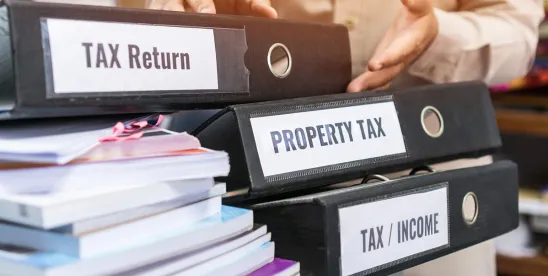California county assessors prepare annual assessment rolls consisting of all taxable property in their county. In many counties, 2024 roll values increased substantially compared to 2023: Contra Costa (up 4.17%), Los Angeles (up 4.85%), Orange (up 5.41%), Riverside (up 7.11%), San Diego (up 5.58%), San Francisco (up 2.12%), San Mateo (up 5.75%), and Santa Clara (up 5.39%). This is despite rising interest rates that have tamed the real estate market.
Taxpayers across the state should consider reviewing both their real and personal property assessments. Under California law, property may not be assessed at a value greater than its fair market value. If property is over-assessed, taxpayers should protect their rights and consider filing timely appeals with the local assessment appeals board or county board.
Overview – Local Property Tax System
California’s local real property tax system is not based primarily on a property’s annual market value, which may fluctuate from year to year. Rather, under Proposition 13, assessors evaluate real property on its base year value. For real property owned since Proposition 13’s 1978 enactment, the property’s 1975 assessed value would be the base year value. To determine the maximum taxable value for any year after 1975, assessors calculate a factored base year value, which is the base year value with annual increases limited to the inflation rate, as measured by the California Consumer Price Index, or two percent, whichever is less, until the property changes ownership or is subject to new construction.
At the time of an ownership change or completion of new construction, assessors redetermine the base year value of the property. For changes in ownership, the property’s fair market value on the change in ownership date becomes the new base year value. For new construction, assessors add the value of that new construction to the existing trended base year value of the property, which receives its own separate new base year value. The new base year value is then factored for each subsequent year, with the same limitation on annual increases as described above.
How is a Base Year Value Determined?
What makes property taxes unique? Unlike most taxes, which are based upon a taxpayer’s declaration of value or income, property taxes are based upon an opinion of value the government establishes. The person making this determination is often someone the taxpayer has never met and who likely has not seen the property before. Although the assessor’s office typically enrolls the purchase price as the assessed value, it may choose to enroll another amount if it determines that the property should have transferred in the open market for other than the value determined in the sale transaction.
Temporary Reductions
Although many appeals involve determining the proper base year value following a change in ownership or new construction, taxpayers often file appeals when the property’s value has declined below the assessed value or trended base year value, called Proposition 8 appeals. Under Proposition 8, taxpayers may ask for a temporary revaluation of their property if they believe that its fair market value has decreased below the factored base year value. Although these appeals technically apply only to the year at issue, under applicable case law, the lower value established must remain on the roll for subsequent years until the assessor performs an appraisal and determines that the property’s value has increased.
Common Reasons for Appealing Assessments
There are many reasons to file an assessment appeal, but some are more prevalent than others. Some of the most common reasons include:
| 1. | the market value has declined; |
|
| 2. | there was no change in ownership or new construction; |
|
| 3. | the assessor failed to enroll the purchase price, or the purchase price exceeded the property’s fair market value; |
|
| 4. | owners discovered contamination on the property; |
|
| 5. | the property is exempt; and |
|
| 6. | the assessor overestimated the value of completed new construction, or included exempt property in that assessment. |
There are, however, many other reasons to appeal an improper assessment.
Assessment Appeal Filing Deadlines
The deadline for filing an assessment appeal for the 2024 assessed value varies from county to county but will be either Sept. 16, 2024 (Sept. 15 falls on a Sunday this year), or Dec. 2, 2024 (Nov. 30 falls on a Saturday this year). Alameda, Alpine, Inyo, Kings, Mono, Placer, San Francisco, San Luis Obispo, Santa Clara, Sierra, and Ventura counties all have a deadline of Sept. 16 this year.






 />i
/>i

